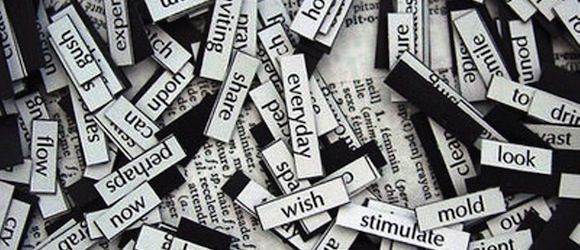What Difference Do Words Make?
Essay

Warning: This article will contain spoilers for The Walking Dead comic book and the television show as well as references to adult themes.
Do you pay attention to adverbs, adjectives, or verbs in what you read? They’re just words, right? Except that they can be used to frame a narrative in a certain way. I was struck by this doing research for a Walking Dead-related short story contest. I decided to give words to a woman who has been mostly denied them on the show, Michonne. Given that my Walking Dead compendium will arrive soon and I’ve faithfully followed the show, I thought I could safely take a peek at her Wikipedia page. The character arcs vary widely between the two mediums (which I was expecting) but I came across something else that was intriguing-the language used to describe her story.
The Walking Dead is chock full of violence. Every character suffers at the very least threat of violence, or actual violence, or even torture. Every character also acts violently. So why on Michonne’s Wikipedia page, are the descriptions of violence done to her and that she does are unequally described?
Here is a description of violence done to Michonne: “The Governor betrays and captures them, and violently rapes, tortures, and uses Michonne as a toy.”
Here is a description of violence done by Michonne: “She then sadistically tortures the Governor before making her way back to the prison with the rest of the group”
Notice how the Governor doesn’t have an adverbs applied to his violent acts? But Michonne’s actions are. Her torture is “sadistic”. First things first, is it sadistic? Merriam-Webster defines sadism as:
1: a sexual perversion in which gratification is obtained by the infliction of physical or mental pain on others (as on a love object)
2 a : delight in cruelty
b : excessive cruelty
Let’s say that the description here means “delight in cruelty” (I have been informed by a comic reader that the sexual perversion definition doesn’t apply). This adverb used forces us to view her actions in a certain light-as wanton or excessive, without purpose. But they aren’t. Michonne’s violence is an act of retaliation for the violence done to her. She may also derive enjoyment from torturing the man who raped her, but it is not done merely for the sake of pleasure. Descriptions of violence aren’t the only place words are used to skew perspective:
“She immediately bonds with Tyreese…After showing signs of attraction, she performs oral sex on him. Having seduced him, she precipitates the breakup of Tyreese and Carol, which results in a relationship between Tyreese and Michonne.” The Merriam-Webster definition of seduce:
1: to persuade to disobedience or disloyalty
2: to lead astray usually by persuasion or false promises
3: to carry out the physical seduction of : entice to sexual intercourse
I can’t dispute that as Tyreese was in a relationship with Carol at the time of their sex act, so a seduction (by definition) occurred. But hang on a minute. “Seduction” is not a neutral word-it is a blame word. It’s applied solely to Michonne. Was she the catalyst? Certainly. Is she blameless? Certainly not. So why does Michonne get a loaded verb for her action and Tyreese does not-even though we all know it takes two to tango.
This could just as accurately read “After their liaison, Tyreese and Carol breakup, which results…” Let’s be clear: Tyreese wasn’t a powerless victim. Men aren’t helpless, pathetic, slaves to their sexual urges-to suggest so is insulting. As insulting as placing all of the blame on Michonne.
Are these differences small things in the grand scheme of the universe? Absolutely. But once you realize how they can subtly affect your perception, they become a more important, and you will see this kind of thing everywhere.
I point out these differences not to complain or accuse, but to draw attention to how easy it is to express the dominant perspective and not even notice. I don’t know even if the person who wrote this male or white, but I do know that the descriptors used eschew a darker part of that perspective. I know these descriptions are from Wikipedia, and that just reinforces my point. Thousands of people have read and will read that page and will have their view of Michonne colored by the words applied to her, but not of the men referenced on her page.
So, how do we change things? First off, being mindful of how we use language ourselves. Trying to avoid using inflammatory blame words – for both sexes – unless the situation actually calls for it (rape, murder, abuse, etc.) helps. Secondly, I believe that gently exposing people we know to the idea of the male dominant narrative in a non-accusatory way, and to the idea that not everyone sees everything through that dominant framework is the best way to start changing things. Maybe sharing this article will help some people examine more deeply what they read and how they read it. I know I won’t read any Wikipedia article the same way again.
Holly Peacock is an English born, proudly naturalized American, living in Indianapolis. She cosplays most days as a normal person doing a computer related job. Her spare time is devoted to fretting about not writing novels. She is @boudieka on Twitter, and blogs at boldlycogitating.com.
Have a tip we should know? tips@themarysue.com